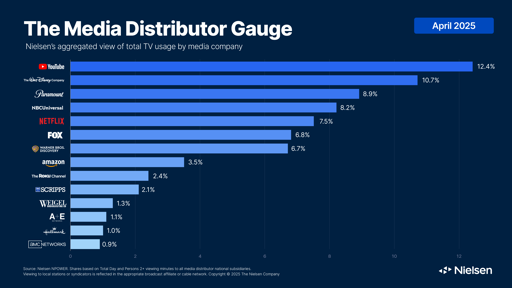lemm.ee is shutting down at the end of this month
-
The key reason is that we just don’t have enough people on the admin team to keep the place running. Most of the admin team has stepped down, mostly due to burnout, and finding replacements hasn’t worked out.
-
The key reason is that we just don’t have enough people on the admin team to keep the place running. Most of the admin team has stepped down, mostly due to burnout, and finding replacements hasn’t worked out.
The sad reality is that while there are a lot of great people on Lemmy, there are also some who use the platform to attack others, stir up conflict, or actively try to undermine the project. Admins are volunteers who deal with the latter group on a constant basis, this takes a mental toll. Please understand why our admins chose to step down, and be kind to the admins on whatever instance you decide to join.
-
The key reason is that we just don’t have enough people on the admin team to keep the place running. Most of the admin team has stepped down, mostly due to burnout, and finding replacements hasn’t worked out.
Managing a federated network comes with a lot of responsibility.
-
The key reason is that we just don’t have enough people on the admin team to keep the place running. Most of the admin team has stepped down, mostly due to burnout, and finding replacements hasn’t worked out.
Shiiiit. What's the easiest way to migrate all my communities quickly???
-
Shiiiit. What's the easiest way to migrate all my communities quickly???
Go to your settings, and scroll down. Theres an export to json option. Just save it, and then you can imprt that file in your new account. Super easy.
Figuring out where to go is a little harder though.
-
The key reason is that we just don’t have enough people on the admin team to keep the place running. Most of the admin team has stepped down, mostly due to burnout, and finding replacements hasn’t worked out.
That’s depressing news, but I get it.
Any suggestions on alternative instances?
-
The sad reality is that while there are a lot of great people on Lemmy, there are also some who use the platform to attack others, stir up conflict, or actively try to undermine the project. Admins are volunteers who deal with the latter group on a constant basis, this takes a mental toll. Please understand why our admins chose to step down, and be kind to the admins on whatever instance you decide to join.
I’ve noticed this a ton over the last two or three months. Lemmy has become so much more negative than it was when I joined. It’s a real bummer. I can’t even imagine trying to be a mod or an admin.
-
The key reason is that we just don’t have enough people on the admin team to keep the place running. Most of the admin team has stepped down, mostly due to burnout, and finding replacements hasn’t worked out.
Sad to hear this. I liked the people I’ve met from lemm.ee and the hands-off approach to defederation that the instance had.
-
That’s depressing news, but I get it.
Any suggestions on alternative instances?
lemmy.zip would be my recommendation.
-
That’s depressing news, but I get it.
Any suggestions on alternative instances?
-
I’ve noticed this a ton over the last two or three months. Lemmy has become so much more negative than it was when I joined. It’s a real bummer. I can’t even imagine trying to be a mod or an admin.
agreed. the honeymoon period post-reddit-exodus was nice but this place is just like everywhere else now.
-
The key reason is that we just don’t have enough people on the admin team to keep the place running. Most of the admin team has stepped down, mostly due to burnout, and finding replacements hasn’t worked out.
Oof owie, my instance
-
Go to your settings, and scroll down. Theres an export to json option. Just save it, and then you can imprt that file in your new account. Super easy.
Figuring out where to go is a little harder though.
Oh wow I didn't realize that settings export included communities. That's great.
-
The key reason is that we just don’t have enough people on the admin team to keep the place running. Most of the admin team has stepped down, mostly due to burnout, and finding replacements hasn’t worked out.

-
Go to your settings, and scroll down. Theres an export to json option. Just save it, and then you can imprt that file in your new account. Super easy.
Figuring out where to go is a little harder though.
Just switched and it was buttery smooth
-
The key reason is that we just don’t have enough people on the admin team to keep the place running. Most of the admin team has stepped down, mostly due to burnout, and finding replacements hasn’t worked out.
Thanks for all your work, you ran a great instance and I appreciate all the effort you put into it
-
The key reason is that we just don’t have enough people on the admin team to keep the place running. Most of the admin team has stepped down, mostly due to burnout, and finding replacements hasn’t worked out.
I have mostly just lurked here and wanted to come out of my shell to say thank you, admins, for all your hard work on this instance. You did a great job running this instance and I'll miss being the goblin hiding in the corner here.
Best of luck with your next endeavors.
-
The key reason is that we just don’t have enough people on the admin team to keep the place running. Most of the admin team has stepped down, mostly due to burnout, and finding replacements hasn’t worked out.
What happens to the communities there? Is there a way for them to automatically migrate to another instance?
-
Go to your settings, and scroll down. Theres an export to json option. Just save it, and then you can imprt that file in your new account. Super easy.
Figuring out where to go is a little harder though.
Only bad thing is it doesn't migrate your posts and comments. Thankfully it does migrate your saved posts!
-
Hey Realtalk you ought to fuck right off







